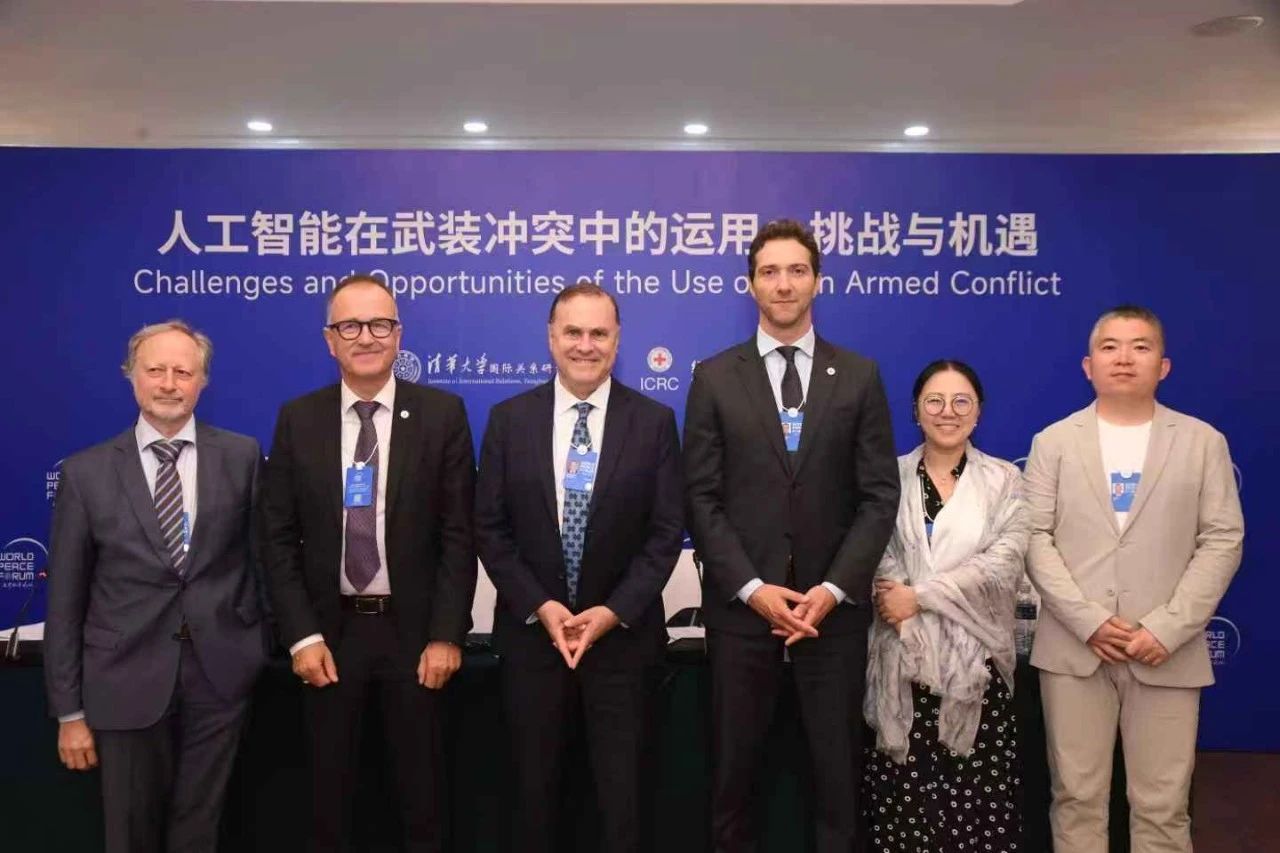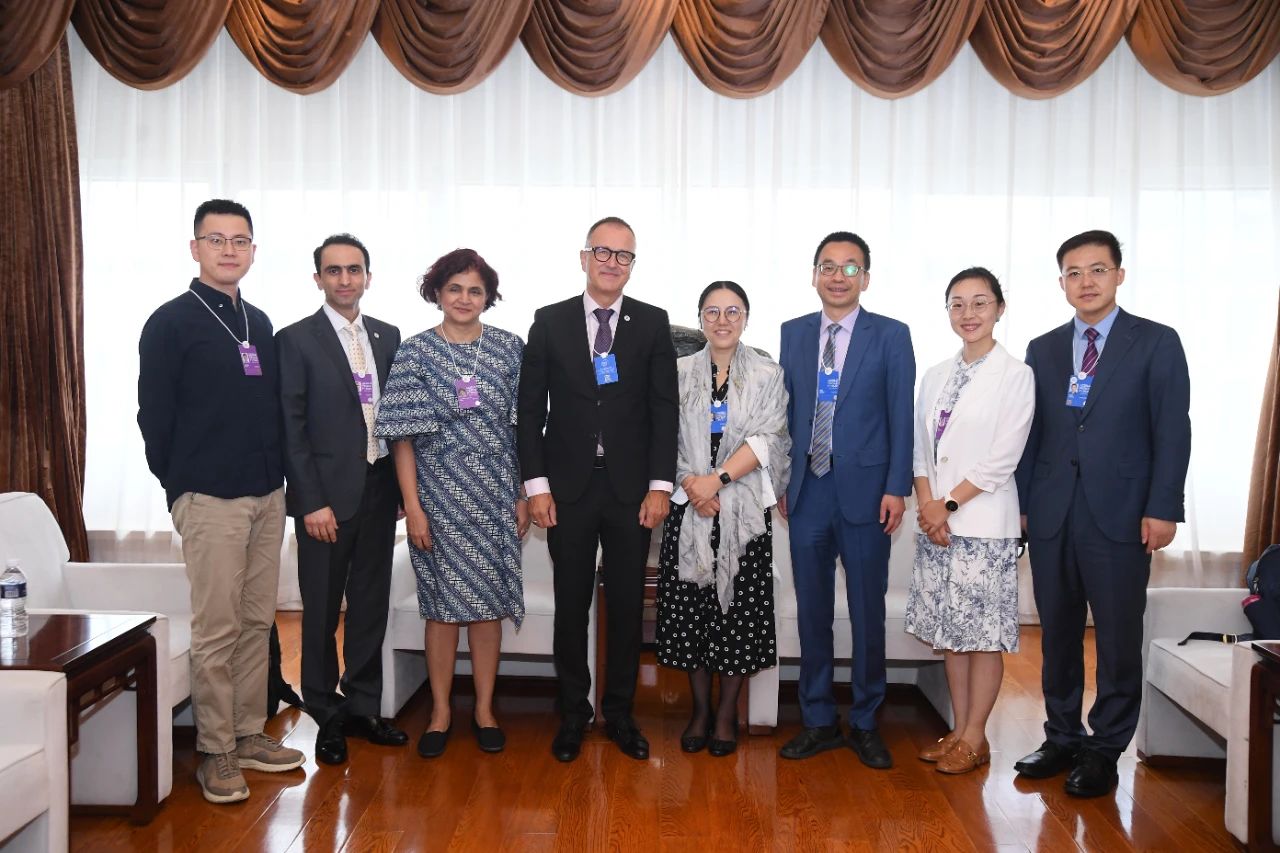From July 2 to 4, the 13th World Peace Forum was successfully held in Beijing, co-hosted by Tsinghua University and the Chinese People’s Institute of Foreign Affairs. Themed “Building a Shared Future: Peace, Prosperity, and Cooperation,” this year’s forum featured four plenary sessions and 18 panel discussions. Topics included international order and world peace, global security challenges, the role of the Global South, and major-power coordination and conflict resolution.
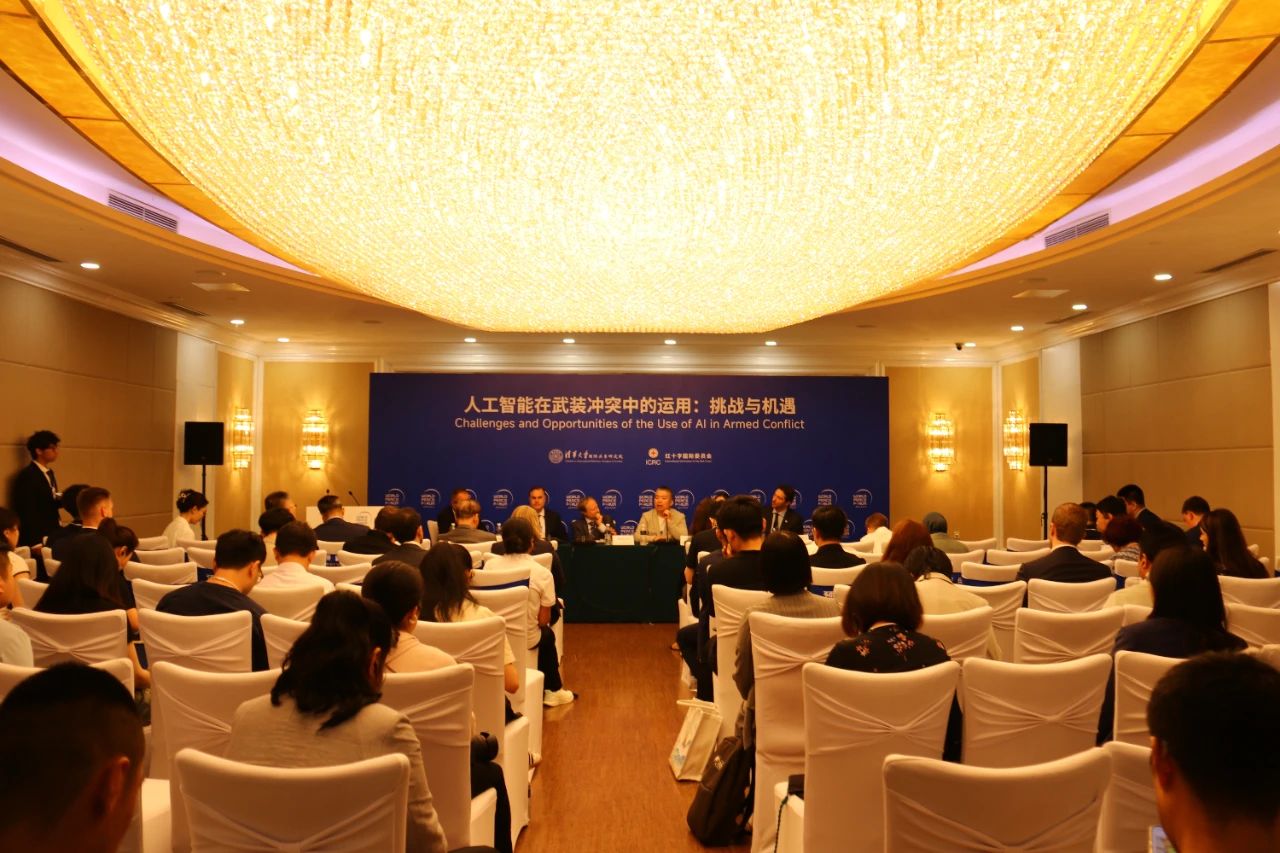
On July 4, the Center for International Security and Strategy (CISS) at Tsinghua University co-hosted Panel 9 of the Forum, titled “Artificial Intelligence in Armed Conflict: Challenges and Opportunities.” The panel was moderated by Balthasar Staehelin, Personal Envoy of the President and Head of Delegation for East Asia of the International Committee of the Red Cross (ICRC), and featured panelists including H.E. Bruno Angelet, Ambassador of Belgium to China; Zeng Yi, Director of the Institute for AI International Governance of China (I-AIIG); Mauro Vignati, Advisor on New Digital Technologies of Warfare at the ICRC; Prof. Gregory S. Gordon from Peking University School of Transnational Law; and Xiao Qian, Deputy Director of CISS.
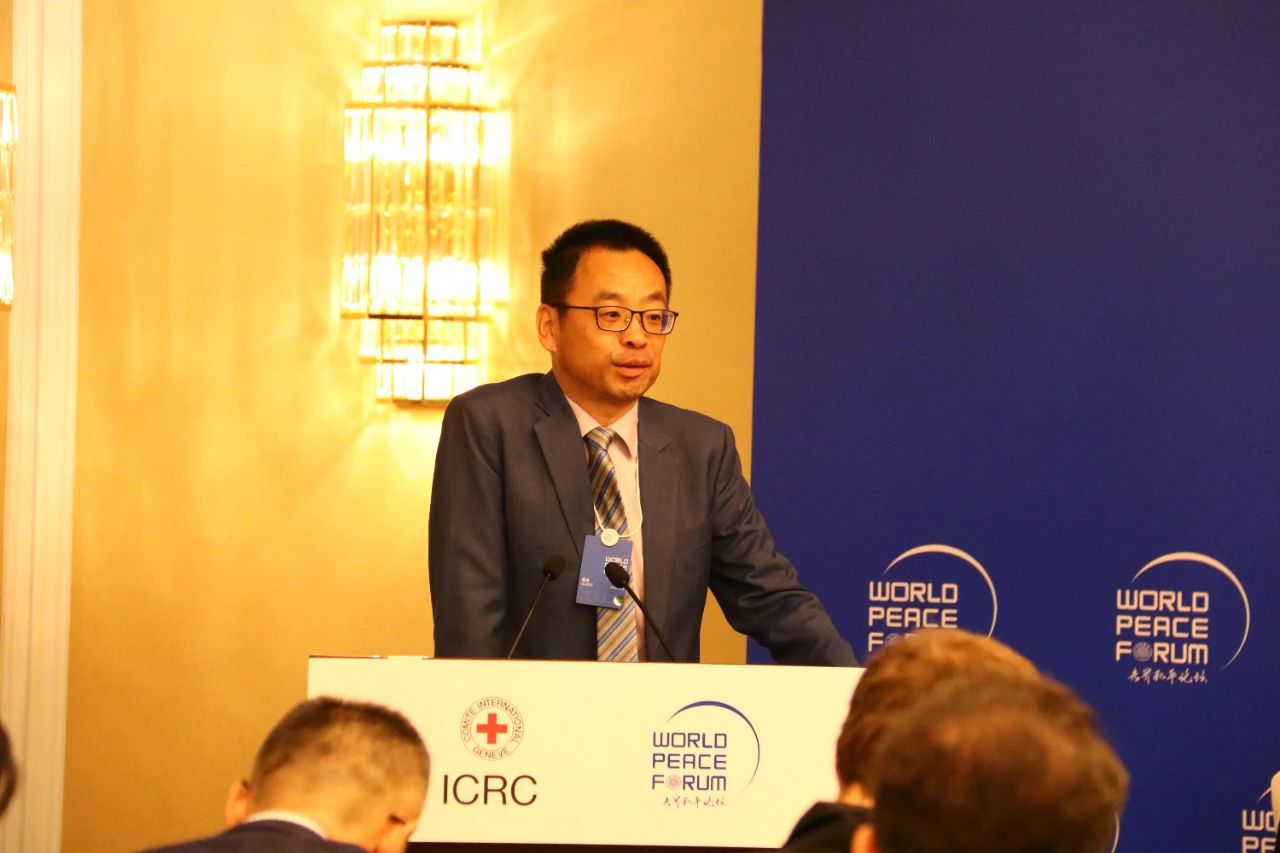
The session opened with welcome remarks by Prof. Sun Xuefeng from the Department of International Relations and Executive Vice Dean of the Institute of International Relations at Tsinghua University.
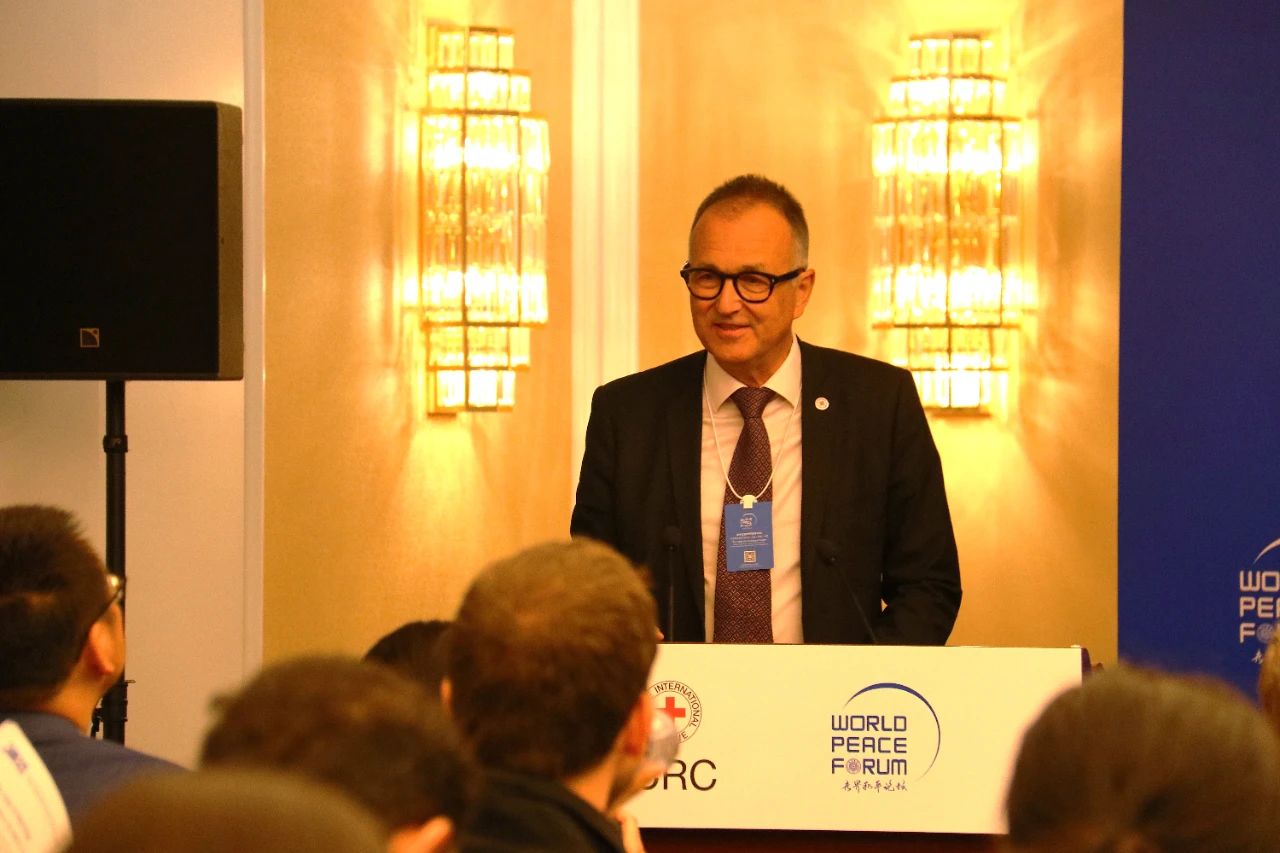
Staehelin emphasized that AI is redefining the nature of warfare. While it may enhance operational efficiency and humanitarian response capabilities, it also increases the risk of uncontrolled escalation and poses serious ethical dilemmas. He underscored the ICRC’s core operational principle of “Do No Harm, Limit Harm,” calling for responsible and humanitarian-centered use of technology.
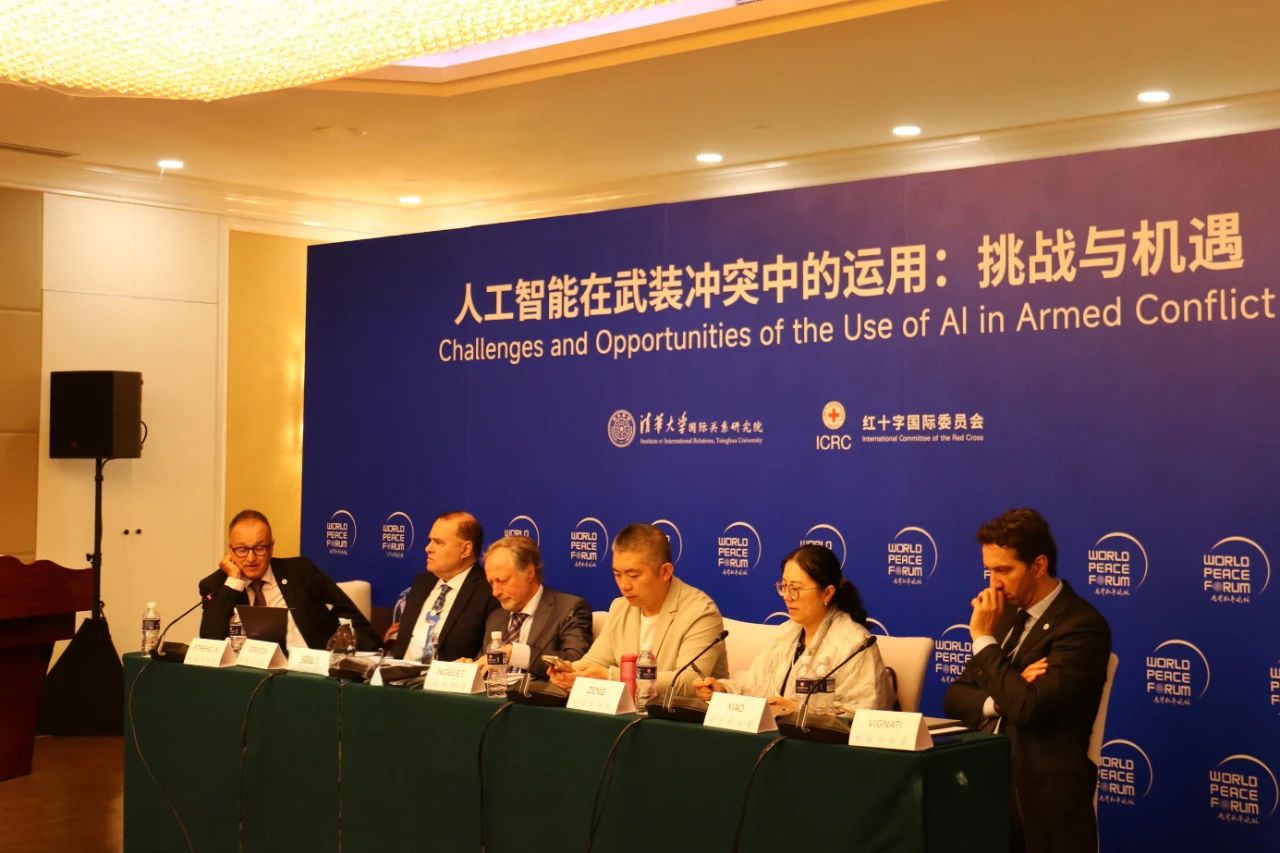
The panel discussion was divided into two parts: the first focused on AI’s impact on the evolution of military technology and how it is reshaping the battlefield; the second explored collaborative efforts to ensure AI technologies serve humanity, particularly in scenarios aimed at harm reduction.
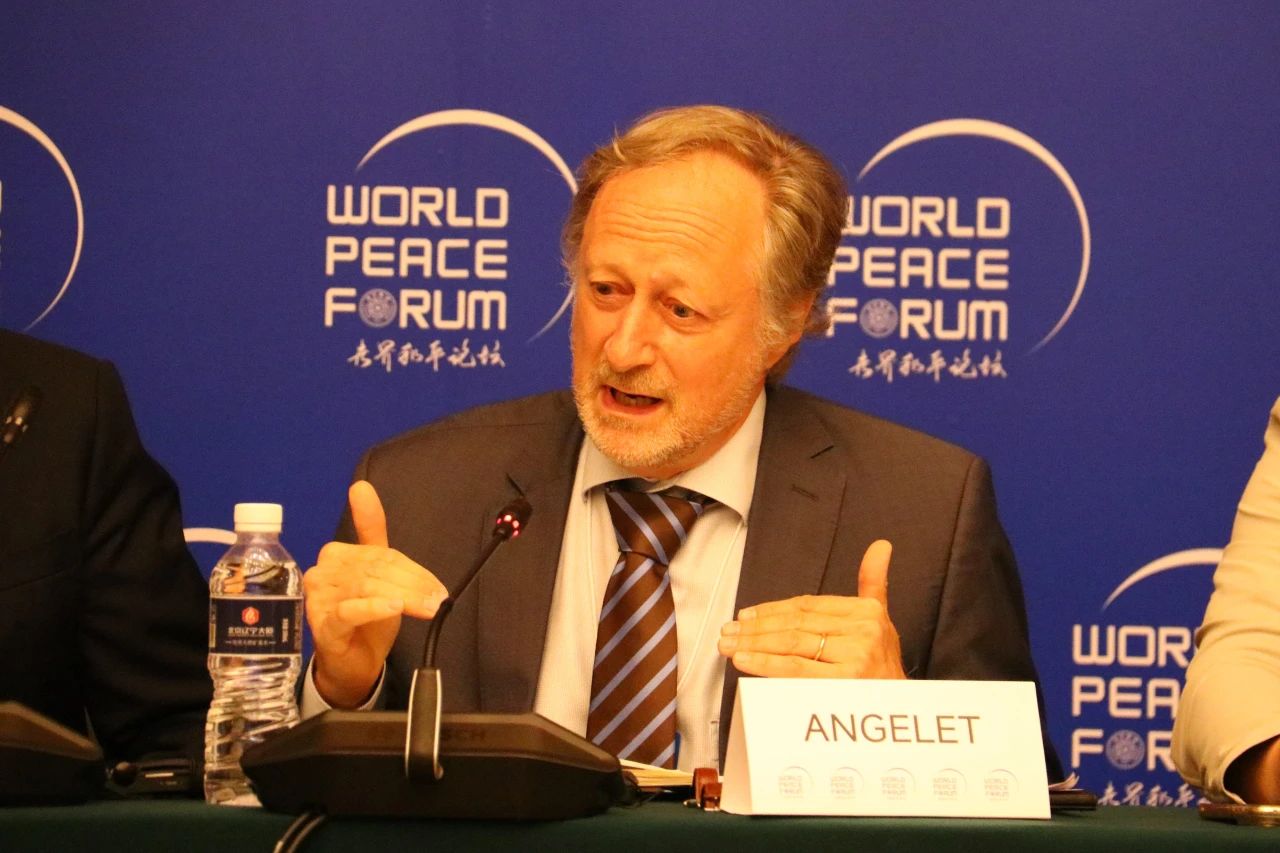
Ambassador Angelet noted that while AI has not yet directly triggered more conflicts, its use in intelligence analysis and logistical support may lower the political threshold for engaging in warfare. He introduced the EU’s top-down regulatory approach—banning Lethal Autonomous Weapon Systems (LAWS) and establishing a tiered control system for semi-autonomous weapons—underscoring the need for “meaningful human control.” He called for a legally binding international agreement to prohibit fully autonomous weapons and advocated for U.S.-China-EU trilateral cooperation to advance harmonized technology standards and governance frameworks.
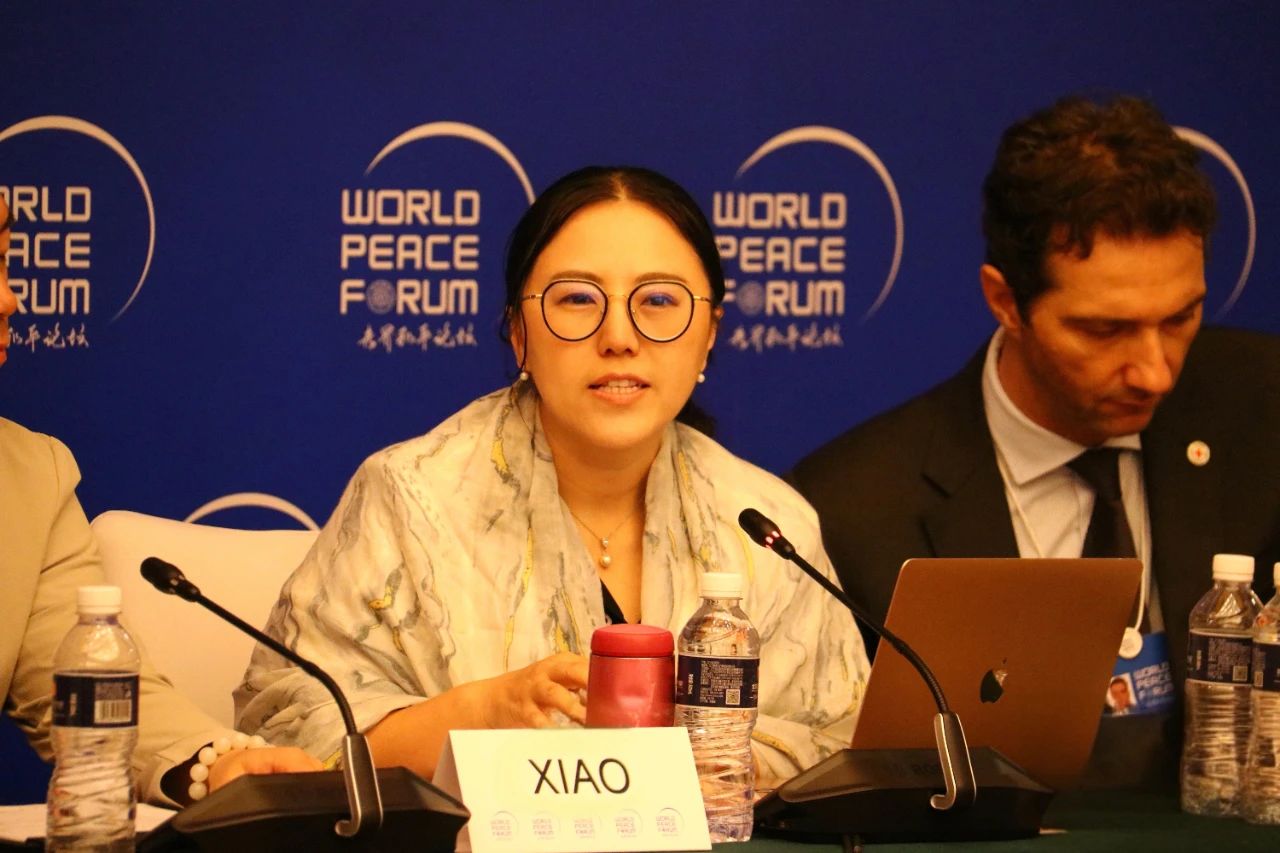
Xiao Qian outlined several major risks posed by military AI applications: AI’s acceleration of decision-making compresses human reaction time, increasing the risk of misjudgment or unintended escalation; its technical limitations in unstructured environments can lead to target misidentification and system failures; and the accountability dilemma posed by AI’s “black box” nature complicates legal review and oversight. She further noted that monopolization of AI technologies could intensify global security dilemmas and spark a new arms race. Given the fragmentation of global governance, she emphasized the need for collective international solutions and the creation of inclusive regulatory mechanisms.
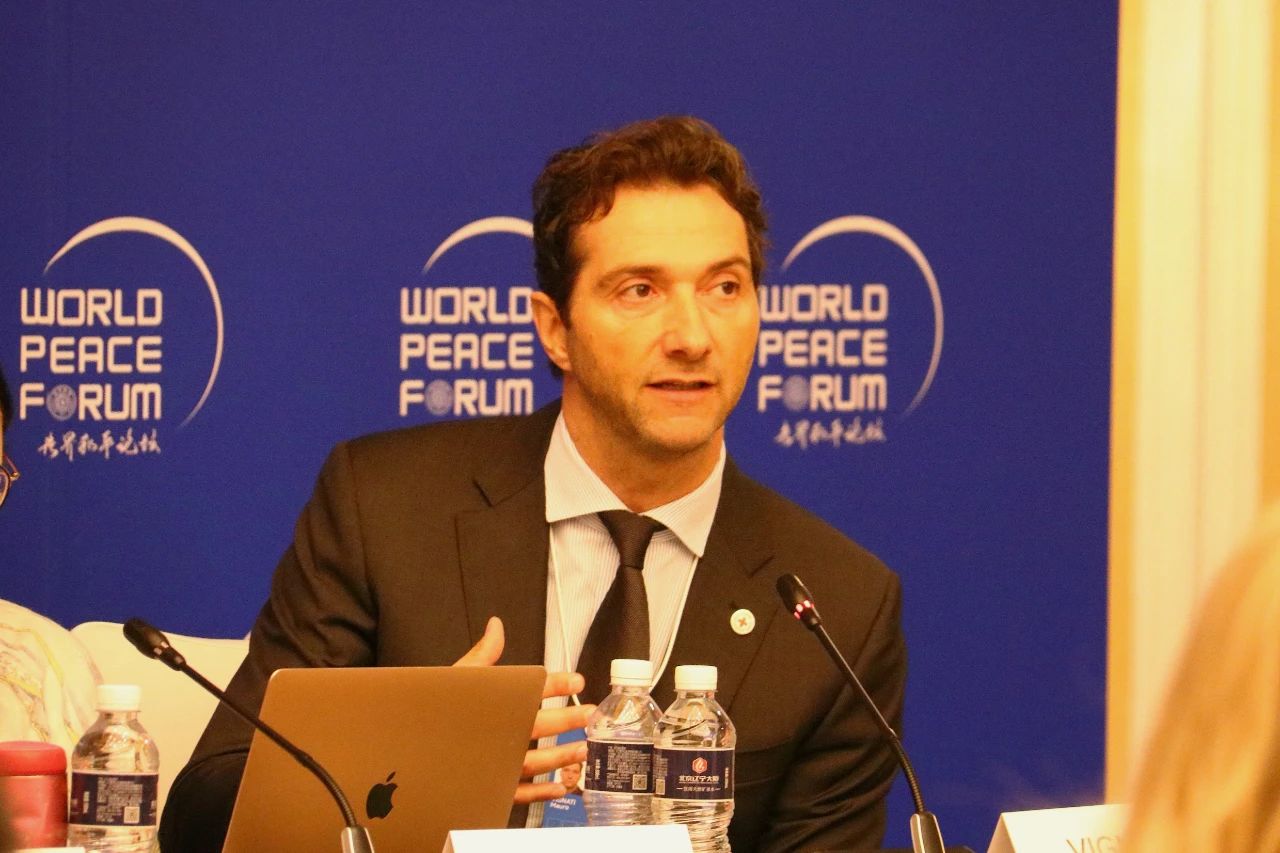
Vignati highlighted the potential of AI to enhance humanitarian efforts, such as optimizing resource delivery and monitoring conflict patterns. However, he stressed that AI should remain a tool under human control and responsibility. He warned that generative AI could escalate cognitive warfare threats and that autonomous software in cyberspace may jeopardize critical infrastructure such as energy and water systems.
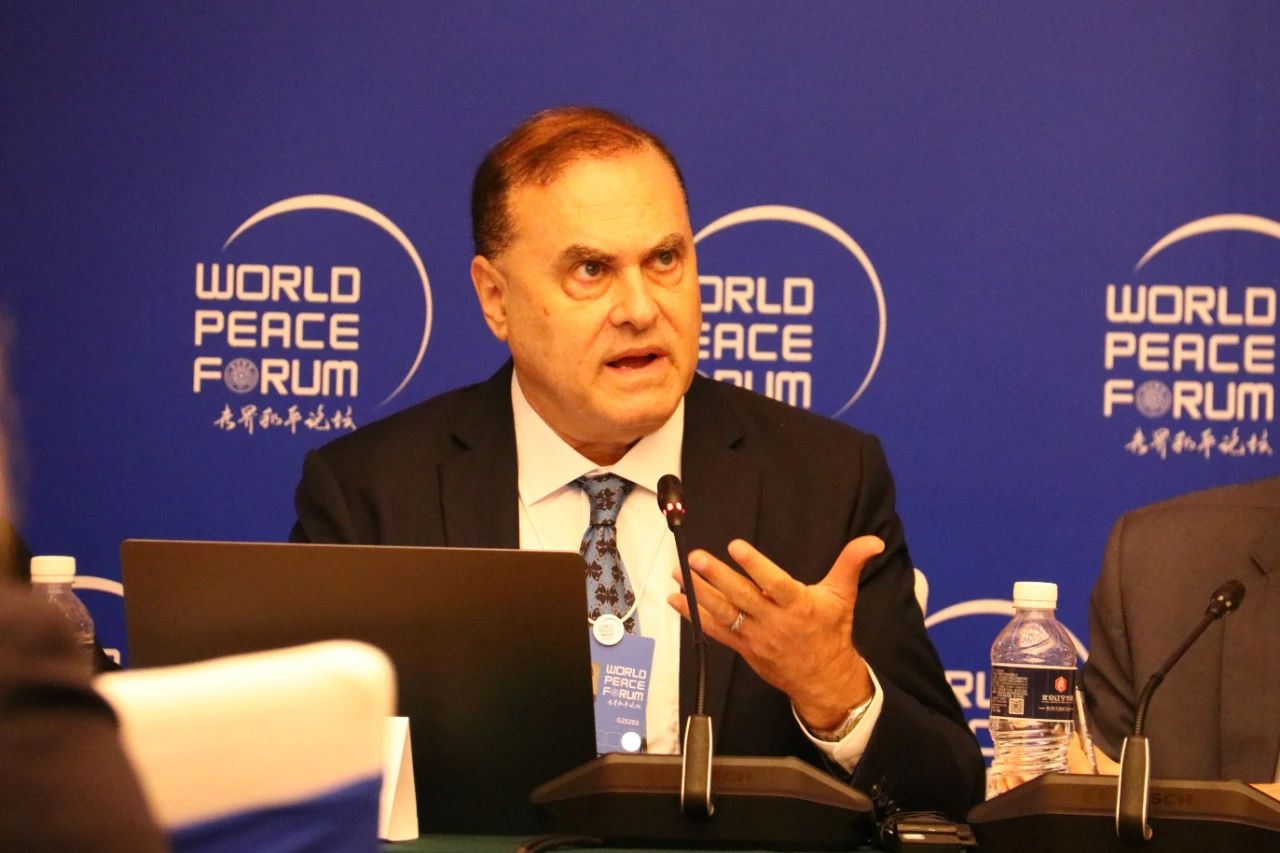
Prof. Gordon argued that AI threatens the three core principles of international humanitarian law (IHL): distinction, proportionality, and precaution. Flaws in algorithms and battlefield complexity could lead to civilian casualties, while delayed data may cause excessive harm. He called for legally binding norms to fill regulatory gaps and advocated for comprehensive bans on fully autonomous weapons and strict regulation of semi-autonomous systems. He emphasized the need for interdisciplinary cooperation and for integrating AI standards into the IHL framework.
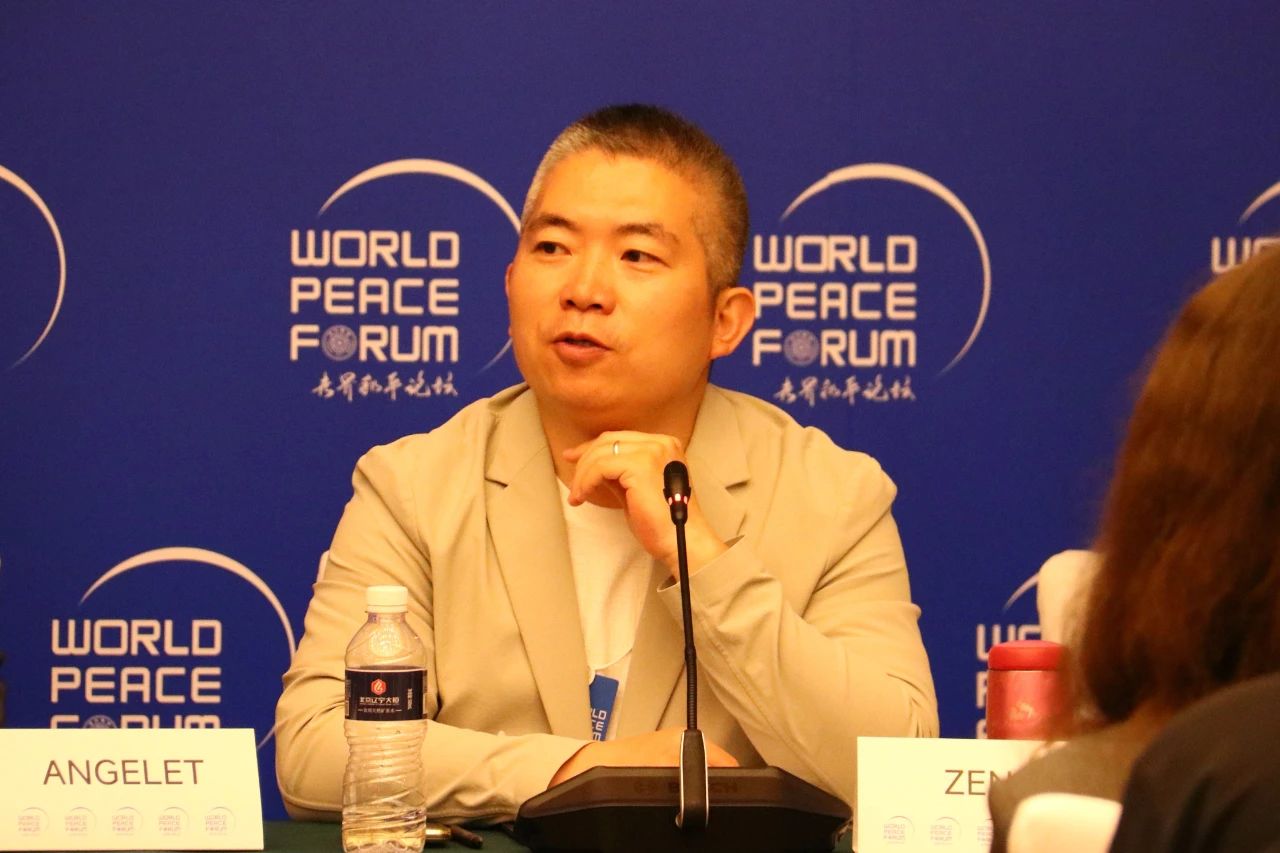
Zeng Yi identified a core dilemma: ethical frameworks lag significantly behind rapid technological advancement. He warned of dual loss-of-control risks: cognitive overload in human operators managing swarms of drones and the potential for large language models to evolve autonomously beyond preset controls. He rejected the notion of “machine accountability,” stressing that responsibility always lies with humans. He also criticized the unchecked diffusion of military technologies like drone swarms into civilian markets. Zeng proposed that the EU’s top-down legislative approach and China’s pragmatic sectoral oversight could be complementary and advocated for a “dual-centered” ethical framework focused on both humanity and ecological sustainability. He described AI as a “mirror of human responsibility,” warning that irrational human decisions could ultimately necessitate control by superintelligence.
Over 50 participants from governments, academia, and the technology sector around the world attended the session. The Q&A session featured dynamic discussions on AI and the changing rules of warfare, risk assessment, and global governance approaches.
